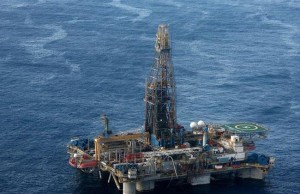Cyprus: EU energy hub of the future?
ST. JULIAN’S, MALTA: EU officials and experts voiced support over the weekend for proposals to turn Cyprus into an energy hub for Europe in order to reduce the continent’s dependence on Russian gas.
The European Commission Vice President Gunther Oettinger, one of the key speakers at an energy conference in Malta, strongly advocated a long-term alternative to Russian gas.
“Stability in the region is important for our own security, as volatility, rivalry and unrest could spill over into the EU,” Oettinger said. “Security of gas supply is of particular mutual interest, and reinforcing the regional trade in gas would be of significant benefit to gas producers and consumers in the EU, North Africa and the Middle East.”
Oettinger also outlined a need in Europe for liquefied natural gas, which Cyprus hopes to make part of its emerging status as an energy hub with the eventual opening of a massive LNG plant.
“LNG will be an important flexibility element and we need to better use our existing and future regasification capacities,” he said. “We also need a reinforced partnership with Norway, the acceleration of the Southern Gas Corridor and the promotion of a new gas hub in Southern Europe.”
Echoing similar views, energy expert Roudi Baroudi said the recent confrontations between Ukraine and Russia underlined Europe’s vulnerability, because it depends on Russia for about a third of its gas imports.
“If you want to shield the EU from energy dependence, establishing a new regional energy hub in Cyprus is the only game in town. If anything merits official EU recognition as a Project of Common Interest, this is it,” Baroudi argued.
He added that the island nation offers several advantages over other options for Europe’s energy security.
“It would bypass disagreements over transit routes, avoiding internal bottlenecks and price disputes,” he explained. “And for good measure, the new energy landscape would lead to lower prices by contributing to healthy competition among several suppliers.”
The event, which also addressed Malta’s potential as a gateway for the emerging eastern Mediterranean energy economy, drew a variety of senior figures from the public and private sectors. It was co-hosted by Maltese Energy Minister Konrad Mizzi, his Cypriot counterpart George Lakkotrypis, and Oettinger, who also serves as energy commissioner.
The event was attended by several European and Mediterranean ministers, including President of the European Energy Council Claudio De Vincenti and the Greek Energy and Environment Minister Yiannis Maniatis.
